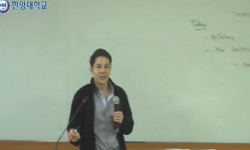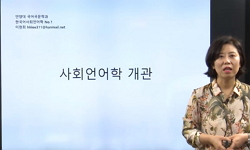In the 1990s, pressured by an economic slowdown, workforce shortage and a decrease in the birth rate, the Japanese government decided to change some of its immigration laws. This permitted foreign-born individuals who possessed Japanese ancestry (Nikk...
http://chineseinput.net/에서 pinyin(병음)방식으로 중국어를 변환할 수 있습니다.
변환된 중국어를 복사하여 사용하시면 됩니다.
- 中文 을 입력하시려면 zhongwen을 입력하시고 space를누르시면됩니다.
- 北京 을 입력하시려면 beijing을 입력하시고 space를 누르시면 됩니다.

Dekasegi Portuguese: Towards a Nomenclature and Outlining of the Existence of a Portuguese Language Variety in Japan
한글로보기https://www.riss.kr/link?id=A107409733
-
저자
Felipe Dall’Ava (University of Macau)

- 발행기관
- 학술지명
- 권호사항
-
발행연도
2021
-
작성언어
English
- 주제어
-
등재정보
KCI등재
-
자료형태
학술저널
- 발행기관 URL
-
수록면
129-161(33쪽)
-
KCI 피인용횟수
0
- DOI식별코드
- 제공처
-
0
상세조회 -
0
다운로드
부가정보
다국어 초록 (Multilingual Abstract)
In the 1990s, pressured by an economic slowdown, workforce shortage and a decrease in the birth rate, the Japanese government decided to change some of its immigration laws. This permitted foreign-born individuals who possessed Japanese ancestry (Nikkei) to have access to the Japanese labor market, primarily as blue-collar workers. Since then, a considerable number of Brazilians have moved to Japan and have brought with them their habits, culture, and language. This is the context of the Portuguese language spoken by these Brazilians, which has considerably changed through contact with Japanese and other foreign languages. This new Portuguese language variety has been detected and is being steadily explored in academia, and it has received a range of distinct names. In this paper, I seek to standardize the nomenclature in Portuguese, to develop and establish a name in English and other foreign languages for the variety, as well as to provide a clear definition for the phenomenon to distinguish it from other possible language contacts involving Portuguese and Japanese.
목차 (Table of Contents)
- ABSTRACT
- INTRODUCTION
- CONTEXT: WHERE AND HOW THIS VARIETY EMERGED?
- A MATTER OF TERMINOLOGY
- POINTING OUT SOME ADDITIONAL ISSUES
- ABSTRACT
- INTRODUCTION
- CONTEXT: WHERE AND HOW THIS VARIETY EMERGED?
- A MATTER OF TERMINOLOGY
- POINTING OUT SOME ADDITIONAL ISSUES
- A NEW TERMINOLOGY
- REMARKS
- REFERENCES
참고문헌 (Reference)
1 Lange, J.J., "‘Tudo filho de Deus’ – The social integration of Latin Americans in Tokyo" Universität Hamburg 2013
2 Matsue, R. Y., "‘Quem se diferencia apanha’ (Deru Kui Ha Watareru): Experiência etnográfica, afeto e antropologia no Japão" 23 (23): 427-454, 2017
3 Bassolé, A., "« Le français et le français populaire africain : partenariat, cohabitation ou défiance ? FPA, appartenance sociale, diversitélinguistique, » Développement Durable: Leçons et Perspectives"
4 Cherrier, P., "« De la rencontre entre Japon et Brésil : un examen des recréations linguistiques et culturelles, » A La Recherche d’une Anthropologie Non-Hégémonique: La Triangulation Des Cultures"
5 Alves, I., "integração dos neologismos por empréstimo ao léxico português" 28 : 119-126, 1984
6 Rennicke, I., "Variation and Change in the Rhotics of Brazilian Portuguese" University of Helsinki 2015
7 Suehiro Matsumoto, A., "Variante linguística dos nipobrasileiros falada na região de Dourados (MS): interfaces do contexto diglóssico dos nikkeis" 9 (9): 59-81, 2017
8 Sakaguchi, N., "Usos, funções e representações da Língua Portuguesa no Japão:crianças brasileiras do 3º ano do Ensino Fundamental I de escolas homologadas pelo MEC-Brasil" Universidade de São Paulo 2018
9 Sasaki, E., "Um Olhar sobre o ‘Movimento Dekassegui’ de Brasileiros ao Japão no Balanço do Centenário da Imigração Japonesa ao Brasil" 1-18, 2009
10 Barros, D., "Trirriense: carioca ou mineiro? Um estudo sobre a realização do /s/ final trirriense: carioca or mineiro?" 14 : 33-44, 2011
1 Lange, J.J., "‘Tudo filho de Deus’ – The social integration of Latin Americans in Tokyo" Universität Hamburg 2013
2 Matsue, R. Y., "‘Quem se diferencia apanha’ (Deru Kui Ha Watareru): Experiência etnográfica, afeto e antropologia no Japão" 23 (23): 427-454, 2017
3 Bassolé, A., "« Le français et le français populaire africain : partenariat, cohabitation ou défiance ? FPA, appartenance sociale, diversitélinguistique, » Développement Durable: Leçons et Perspectives"
4 Cherrier, P., "« De la rencontre entre Japon et Brésil : un examen des recréations linguistiques et culturelles, » A La Recherche d’une Anthropologie Non-Hégémonique: La Triangulation Des Cultures"
5 Alves, I., "integração dos neologismos por empréstimo ao léxico português" 28 : 119-126, 1984
6 Rennicke, I., "Variation and Change in the Rhotics of Brazilian Portuguese" University of Helsinki 2015
7 Suehiro Matsumoto, A., "Variante linguística dos nipobrasileiros falada na região de Dourados (MS): interfaces do contexto diglóssico dos nikkeis" 9 (9): 59-81, 2017
8 Sakaguchi, N., "Usos, funções e representações da Língua Portuguesa no Japão:crianças brasileiras do 3º ano do Ensino Fundamental I de escolas homologadas pelo MEC-Brasil" Universidade de São Paulo 2018
9 Sasaki, E., "Um Olhar sobre o ‘Movimento Dekassegui’ de Brasileiros ao Japão no Balanço do Centenário da Imigração Japonesa ao Brasil" 1-18, 2009
10 Barros, D., "Trirriense: carioca ou mineiro? Um estudo sobre a realização do /s/ final trirriense: carioca or mineiro?" 14 : 33-44, 2011
11 Córdova Quero, H., "Transnational Faiths: Latin-American Immigrants and their Religions in Japan" Routledge 2014
12 Agost, R., "Translation Studies and the mirage of a lingua franca" 23 (23): 249-264, 2015
13 Shipper, A.W, "The political construction of foreign workers in Japan" 34 (34): 41-68, 2002
14 Vendelin, I., "The influence of orthography on loanword adaptations" 116 (116): 996-1007, 2005
15 Matsumoto, K., "The formation of Brazilian immigrant koine in Japan: Dialect contact theory and the founder principle" 34-37, 2019
16 Kang, Y., "The emergence of phonological adaptation from phonetic adaptation: English loanwords in Korean" 27 (27): 225-253, 2010
17 Tsuda, T., "The Stigma of Ethnic Difference: The Structure of Prejudice and ‘Discrimination’ toward Japan’s New Immigrant Minority" 24 (24): 317-359, 1998
18 Matras, Y., "The Mixed Language Debate: Theoretical and Empirical Advances" Mouton de Gruyter 2003
19 Matsumoto, K., "The Formation of Brazilian Immigrant Koine in Japan: Dialect Contact, the Founder Principle and Feature Pool" 22 (22): 249-262, 2019
20 Mufwene, S., "The Ecology of Language Evolution" Cambridge University Press 2001
21 Vilog, R., "The Dekasegi and Pinoy Descendants: Labor Conditions and Migrant Dynamics of Brazilian and Filipino Nikkeijin Workers in Japan" 35 (35): 653-696, 2011
22 Myers-Scotton, C., "The Bilingualism Reader" 127-153, 2000
23 Souza, F., "Territorio(s), género, trabajo y políticas públicas en América Latina" Editora Provocare 151-161, 2015
24 Cole, W.D., "Terminology: Principles and Methods" 2 (2): 77-87, 1987
25 Tsuda, T., "Strangers in Ethnic Homeland: Japanese Brazilian return migration in transnational perspective" Columbia University Press 2003
26 Glottolog, "Spoken L1 Language: Portuguese" Max Planck Institute for the Science of Human History 2020
27 Coelho, I.L., "Sociolinguistica"
28 Matsumoto, K., "Social class and social meaning in the koineization of a Brazilian Portuguese" 78-81, 2020
29 Lee, S.H., "Sobre a formação de diminutivo do português brasileiro" 8 (8): 113-124, 1999
30 Sasaki, E., "Ser ou não ser japonês?" Universidade de Campinas 2009
31 Yamanaka, K., "Return Migration of Japanese-Brazilians to Japan: The Nikkeijin as Ethnic Minority and Political Construct" 5 (5): 65-97, 1996
32 Sakaguchi, N., "Reflexões sobre oralidade em contexto bidialetal: o uso da língua portuguesa falada por crianças brasileiras no Japão" Japanese Studies, Japan Foundation
33 Santos, R., "Quando os neologismos criam laços sociolinguísticos:investigação sobre o uso do neologismo pelos blogueiros políticos maranhenses" Universidade Federal do Maranhão 2017
34 Córdova Quero, H., "Promised Land(s)?: Ethnicity, Cultural Identity, and Transnational Migration among Japanese Brazilian Workers in Japan" 31 (31): 19-33, 2009
35 Torrano, S., "Produtividade e criatividade do léxico: os neologismos na área da informática" Universidade de São Paulo 2010
36 Yamashita, A., "Polite Language Forms as Markers of an Emerging New Language Order in Nikkei-Brazilian Japanese" 4 (4): 1-16, 2019
37 Linguasphere, "Phylosecteur Indo-European / Indo-European phylosector"
38 Beltrão, K. I., "Permanentemente temporário: dekasseguis brasileiros no Japão" 23 (23): 61-85, 2006
39 Bouchard, M.E., "Ongoing change in post-independence São Tomé: The use of rhotics as a marker of national identity among young speakers of Santomean Portuguese" 31 (31): 21-42, 2019
40 Sayaka, I., "O percurso escolar dos filhos de decasséguis brasileiros retornados" Universidade de São Paulo 2015
41 Sato, A., "O movimento sociocultural dos (dekasseguis) nipo-brasileiros: representações, memórias e fronteiras vivenciadas (1989-2010)" Universidade do Estado de Santa Catarina 2013
42 Costa, J.P.C., "O Português das comunidades decasséguis no Japão:Etnografia Digital no estudo de empréstimos do Japonês em redes sociais" University of Macau
43 Lucchesi, D., "O Português Afro-brasileiro" EDUFBA
44 Assirati, E.T., "Neologismos por empréstimo na informática" 42 : 121-145, 1998
45 Antunes, M., "Neologismos Científicos E Técnicos Na Imprensa Generalista" 6 (6): 4-21, 2012
46 Ganança, J.H., "Neologia e neologismos no português brasileiro: principais ideias" 4 (4): 33-53, 2018
47 Lie, J., "Multiethnic Japan" Harvard University Press 2001
48 Mizumura, C., "Mulheres no jornalismo nipo-brasileiro. Discursos, identidade e trajetórias de vida de jornalistas" Universidade de São Paulo 2011
49 Ferreira, R.H., "Migrações Internacionais: Brasil ou Japão - O movimento de inserção dekassegui no espaço geográfico pelo consumo" Universidade de São Paulo 2007
50 Gradoville, M., "Lusophone, Galician and Hispanic Linguistics. Bridging frames and traditions" Routledge 227-245, 2018
51 Azevedo, M., "Loss of Agreement in Caipira Portuguese" 67 (67): 403-409, 1984
52 Manzenreiter, W., "Living under more than one sun: The Nikkei Diaspora in the Americas" 29 (29): 193-213, 2017
53 Janeli, T., "Linguagem esportiva italiana: o emprego de neologismos nas manchetes do portal Tuttosport" 49 (49): 1379-1392, 2020
54 Phillipson, R., "Lingua franca or lingua frankensteinia? English in European integration and globalization" 27 (27): 250-267, 2008
55 Phoible, "Languages" Max Planck Institute for the Science of Human History
56 Shigematsu, Y., "Language life and the identity of Brazilian university and high school students" 5 : 59-68, 2012
57 Nakamizu, E., "Language contact between Portuguese and Japanese:Functions of Code-Switching in the Speech of Brazilians Living in Japan" 1 (1): 73-91, 2003
58 Goshima, P., "La inclusión de las familias inmigrantes en la escuela: el caso de una comunidad peruana en Japón" 9 (9): 158-173, 2011
59 Siddiqi, S., "Keyword and Keyphrase Extraction Techniques:A Literature Review" 109 (109): 18-23, 2015
60 Ferreira da Silva, A., "Jornalismo brasileiro do outro lado do mundo" Universidade de São Paulo 2008
61 Niland, L., "Japoñolés: El Uso del Japonés, Español e Inglés en la Comunidad Peruano Japonesa"
62 Flores, T., "Japoñol: Spanish-Japanese Code-Switching" 19 (19): 1-21, 2019
63 Oliveira, A., "Japoneses no Brasil ou Brasileiros no Japão: a trajetória de uma identidade em um contexto migratório" Universidade Estadual de Campinas 1997
64 Soares, A., "Identidades dekassegui/decasségui: um olharantropológico" 11 (11): 281-302, 2012
65 "ISO 639-1(2021), Codes for the Representation of Names of Languages"
66 Rossi, E, "Hip Hop en Japoñol" 1-22, 2009
67 Rácz, E., "From japonés to Nikkei: The Evolving Identities of Peruvians of Japanese Descent" Central European University 2019
68 Squires, L., "Enregistering internet language" 39 (39): 457-492, 2010
69 Mortensen, J., "English - The new Latin of academia? Danish universities as a case" 216 : 175-197, 2012
70 Kono, A., "Empréstimos linguísticos como reflexo do fenômeno dekassegui" 179-192, 2001
71 Alves, I., "Empréstimos lexicais na imprensa política brasileira" 32 : 1-14, 1988
72 Matsumoto, K., "Ecology and Identity in Koineization: Cake Baking in a Diaspora Brazilian Portuguese Speech Community in Japan" (14) : 197-244, 2020
73 Murdoch, B., "Early Germanic Literature and Culture" Camden House 235-262, 2004
74 Moreno, J.K., "Do Navio Kasato Maru Ao Porto Digital: As Identificações E a Identidade Comunicativa Expressas Em Blogs De Dekasseguis" Universidade de São Paulo 2009
75 Koike, D., "Differences and Similarities in Men’s and Women’s Directives in Carioca Brazilian Portuguese" 69 (69): 387-394, 1986
76 Takenaka, A., "Diasporic Homecomings: Ethnic Return Migration in Comparative Perspective" Standford University Press 321-344, 2009
77 Trudgill, P., "Dialects in Contact" Basil Blackwell 1986
78 Matsumoto, K, "Dialect contact and koineization in a Japanese Brazilian community: Brazilian Portuguese as a diaspora variety in Japan" 4-9, 2019
79 Trudgill, P., "Determinism in new-dialect formation and the genesis of New Zealand English" 36 (36): 299-318, 2000
80 Irigoyen, S., "Descifrando la liminalidad cultural de los nipoecuatorianos" Universidad Andina Simón Bolívar 2018
81 Dias, N., "Dekasseguês: Um português diferente? Variações linguísticas e interculturalidade nas migrações contemporâneas dentro do sistemamundo moderno" 1 : 62-101, 2015
82 Sasaki, E., "Dekasseguis: migrantes brasileiros no Japão" (6) : 577-603, 1998
83 Roncato, M.S., "Dekassegui, cyber-refugiado e working poor: o trabalho imigrante e o lugar do outro na sociedade de classes" Universidade de Campinas 2013
84 Costa, J. P. C., "De Decasségui a Emigrante"
85 Pires Santos, M., "Da intolerância à ignorância: Fenômenos linguisticamente complexos e Ensino de Português" 1 (1): 1-17, 2011
86 Paradis, C., "Contrasts from segmental parameter settings in loanwords: core and periphery in Quebec French" (13) : 75-95, 1994
87 Gonçalves, C., "Condições de produtividade e condições de produção: uma análise das formas X-eiro no português do Brasil" 42 (42): 33-61, 1998
88 Sakai, A., "Comunidades latinoamericanas en Japón. Nuevas identidades en formación" (15) : 1-19, 2010
89 Newland, K., "Circular Migration and Human Development, United Nations Development Programme Human Development Reports"
90 Rossi, E., "Cantar la identidad: el emigrante/dekasegi en la música de los jóvenes latinos en Japón" 1 (1): 122-143, 2009
91 Watarai, T., "Can a Mestiça be a Haafu? Japanese-Brazilian Female Migrants and the Celebration of Racial Mixing in Contemporary Japan" 35 (35): 662-676, 2014
92 Sasaki, K., "Between Emigration and Immigration: Japanese Emigrants to Brazil and Their Descendants in Japan" 77 : 53-66, 2008
93 Cagliari, L. C., "A epêntese consonantal em português e sua interpretação na Teoria da Otimalidade" 9 (9): 163-192, 2000
94 Fujiwara, E., "A criação de neologismos de base japonesa por falantes de português" Universidade Federal do Mato Grosso do Sul 2014
95 Barbosa, M., "A alternância do diminutivo -inho/-zinho no Português Brasileiro: uma abordagem pela fonologia de uso" Universidade Federal do Rio de Janeiro 2012
96 Feijó, F., "A Sociolinguist Investigation of the Brazilian Community in Ibaraki" University of Tokyo 2016
97 Dall’Ava, F., "A Portuguese language variety in Japan: Dekasegi Portuguese as a sociolect"
98 Feijó, F., "A Narrative Study of Bilingual Brazilians: Stories from Second Generation Brazilian Immigrants in Japan" 25 (25): 87-108, 2019
동일학술지(권/호) 다른 논문
-
Income Inequality and Economic Growth in Developing Countries: The Role of Savings
- 한국라틴아메리카학회
- Carlos Dabus
- 2021
- KCI등재
-
- 한국라틴아메리카학회
- 김영철(Kim, Young-Chul)
- 2021
- KCI등재
-
Causing Troubles Elsewhere: The Shining Path and Its International Networks, 1980-1993
- 한국라틴아메리카학회
- Jian Gao
- 2021
- KCI등재
-
- 한국라틴아메리카학회
- Wen Hsiang Chiu
- 2021
- KCI등재
분석정보
인용정보 인용지수 설명보기
학술지 이력
| 연월일 | 이력구분 | 이력상세 | 등재구분 |
|---|---|---|---|
| 2027 | 평가예정 | 재인증평가 신청대상 (재인증) | |
| 2021-01-01 | 평가 | 등재학술지 유지 (재인증) |  |
| 2018-01-01 | 평가 | 등재학술지 유지 (등재유지) |  |
| 2015-01-01 | 평가 | 등재학술지 유지 (등재유지) |  |
| 2011-01-01 | 평가 | 등재학술지 유지 (등재유지) |  |
| 2009-01-01 | 평가 | 등재학술지 유지 (등재유지) |  |
| 2007-01-01 | 평가 | 등재학술지 유지 (등재유지) |  |
| 2005-10-17 | 학술지등록 | 한글명 : 라틴아메리카연구외국어명 : Asian Journal of Latinamerican Studies |  |
| 2004-01-01 | 평가 | 등재학술지 선정 (등재후보2차) |  |
| 2003-01-01 | 평가 | 등재후보 1차 PASS (등재후보1차) |  |
| 2001-07-01 | 평가 | 등재후보학술지 선정 (신규평가) |  |
학술지 인용정보
| 기준연도 | WOS-KCI 통합IF(2년) | KCIF(2년) | KCIF(3년) |
|---|---|---|---|
| 2016 | 0.19 | 0.19 | 0.14 |
| KCIF(4년) | KCIF(5년) | 중심성지수(3년) | 즉시성지수 |
| 0.13 | 0.14 | 0.373 | 0.2 |




 DBpia
DBpia






